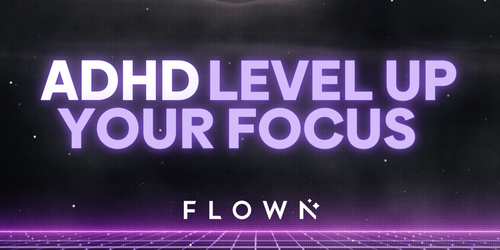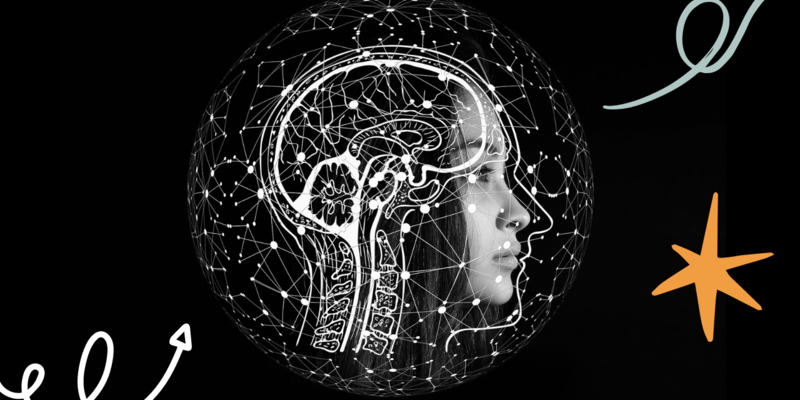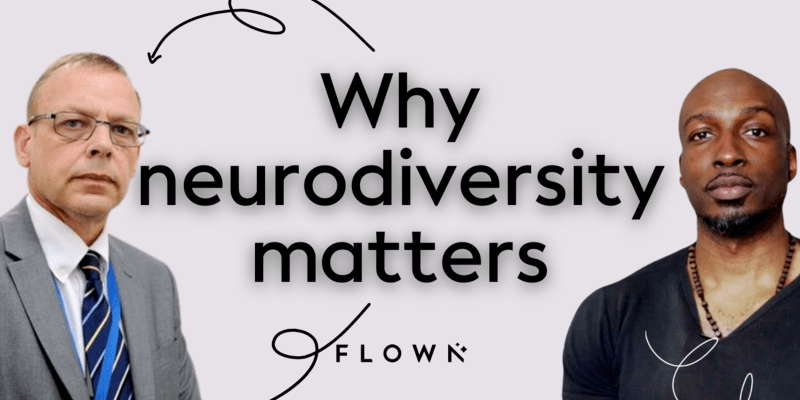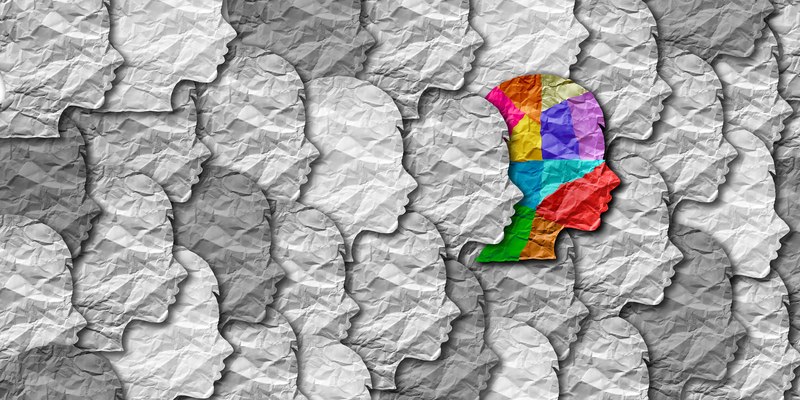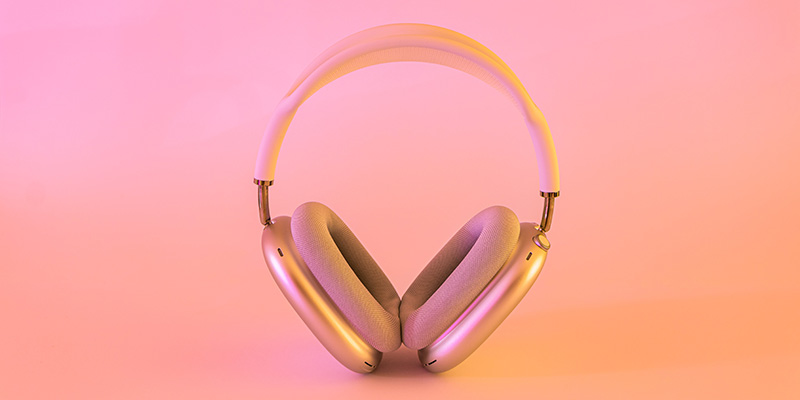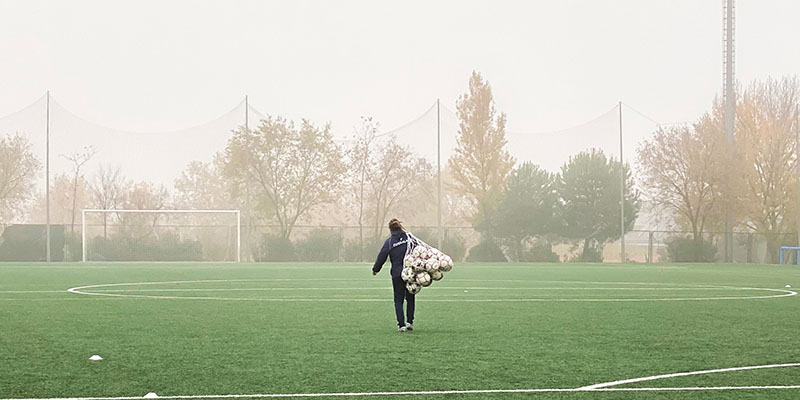ADHD and anxiety in adults: How can I manage it?


By Eleanor Hope-Jones
•
Feb 01, 2023
50% of adults who have attention deficit hyperactivity disorder also have some kind of anxiety disorder.
In fact, anxiety disorders are the most common comorbidity of ADHD.
If you have both adult ADHD and an anxiety disorder it might feel overwhelming, but don’t get disheartened. With the right mindset and thought-out strategy, you can find ways to manage and thrive as an ADHD adult with anxiety.
Let’s dive into the link between anxiety disorders and ADHD, how ADHD medication and anxiety interact, and the different techniques you can use to manage these conditions.
What's the link between anxiety and ADHD?
The thing about attention deficit hyperactivity disorder and anxiety disorders is that a lot of the symptoms overlap, even though they’re different and distinct conditions.
Anxiety is a feeling and physiological response of fear or dread from a perceived threat. Generalized anxiety disorder is the most common form of anxiety and is a long-term condition that makes people feel consistently anxious about a range of situations rather than one specific thing.
ADHD, also known as ADD, is a neurodiversity that presents as a pattern of inattention and or hyperactivity-impulsivity.
Both ADHD and anxiety symptoms include:
Difficulty concentrating
Irritability
Feeling restless
Chronic worry and nervousness
Fear without reason
Trouble sleeping
Headaches or stomach aches
A resistance to trying new things
But ADHD also has unique symptoms such as:
Difficulty finishing tasks
Forgetfulness
Trouble with following instructions
An inability to focus for long periods of time
You can imagine how experiencing the symptoms of ADHD – from trouble focusing to trouble sleeping – can sometimes make ADHD symptoms worse.
Can ADHD cause anxiety?
If you dig a little deeper there are lots of ways ADHD might cause anxiety, from the symptoms of ADHD making life more anxiety-inducing to potential genetic predispositions to both conditions.
Lack of confidence
A common side effect of ADHD, especially in adults, is individuals knowing exactly what they need to do but struggling with implementation.
Another way of looking at this is ADHD adults struggle with self-efficacy, the belief that they’ll follow through with their intentions. This conflict between what you know you should do, and what you believe you’ll do can be highly anxiety-inducing.
Overwhelm
ADHD symptoms like struggling to concentrate, fidgeting, forgetting things and the general ADHD experience of experiencing life intensely means getting overwhelmed is all too probably. This is likely to make decision-making and prioritizing difficult, leading to increased anxiety.
Learn more about body doubling

Emotional dysregulation
Though emotional dysregulation is not yet an official symptom of ADHD in the DSM-5 (The Diagnostic and Statistical Manual of Mental Disorders, Fifth Edition) difficulty in managing emotions is a symptom lots of ADHD adults report.
Struggling to manage discomfort is one of the main causes of procrastination, which often causes extreme anxiety.
Shared Risk factors
Studies have suggested that early exposure to trauma increases both the likelihood of ADHD and the likelihood of anxiety later in life.
Other risk factors exist that have been linked to both ADHD and anxiety including lifestyle factors and premature birth.
Genetics
Most researchers believe that both ADHD and anxiety are far more likely to occur if you have a genetic predisposition to them. Recently there’s been some development in studies that explore this genetic link further.
Dr Joanna Martin and other researchers from Cardiff are delving deeper into this by looking at genes that are known to have a biological relationship with ADHD and anxiety.
Can ADHD be mistaken for anxiety?
In a word: Yes. The two different conditions can easily be mistaken for each other.
An important part of learning to manage conditions is unraveling the two and learning about your unique relationship with them.
An ADHD coach or mental health specialist such as a therapist can help you do this. Bear in mind that ultimately anxiety is a function of fear, and ADHD is a function of inattention, impulsivity and/or hyperactivity.
Try a Flock for free to help you find focus
FLOWN runs 6 deep work sessions every weekday from morning to night. Flocks are digital co-working spaces, designed to free you from distraction and get more done.
How can I manage my ADHD and anxiety?
It’s essential you take the time to understand and learn about your unique experience of these two conditions as they present in every individual differently.
Most people ultimately learn to manage their symptoms through a combination of therapy, mindfulness and medication. How that looks for you will be unique, and it’s worth experimenting with different behaviors, treatments and therapies to find what works for you.
Some things you to look into include:
Following a specific exercise routine
Developing a regular practice of mindful movements like yoga or tai chi
Trying a course in cognitive behavioral therapy (CBT) so you can begin to challenge your own thoughts
Making changes to your diet, such as cutting out caffeine and eating more whole foods
Prioritizing sleep as a non-negotiable
Finding the right form of ADHD medication that doesn’t negatively affect your anxiety
Searching for a like minded community of ADHD adults with whom you can share tactics and experiences
Discovering resources to create rituals for focus and work, like using FLOWN
Talking to your doctor about help for your anxiety, such as a course or seeing a therapist
If you’re looking for more ADHD support try reading our guide on ADHD in the workplace or how to get the government grant that will fund support to help you with work.
Does ADHD medication worsen anxiety?
To treat ADHD first-line medication is often a stimulant drug, so there is a chance taking ADHD medication will worsen anxiety symptoms.
This is because stimulants work by increasing dopamine levels in the brain to reduce ADHD symptoms. For a short while, you’ll experience a boost in concentration and focus and a reduction in inattentive and hyperactive impulses. Stimulant drugs used for ADHD include amphetamines, such as Adderall, and methylphenidates like Concerta and Ritalin.
They can make anxiety worse by creating the physical symptoms of an anxiety disorder, such as an increased heart rate or difficulty sleeping.
Try discussing with your doctor whether your ADHD or your anxiety disorder is more disruptive to your life and whether you could manage the effects of stimulant medication.
For example, you may find it better to take a stimulant drug to reduce the symptoms of your ADHD, but also make new exercise habits to get rid of any excess energy and reduce anxiety.
But if you’re more concerned about your anxiety disorder and have severe anxiety symptoms it may be worth looking at second-line non-stimulant drugs such as Atomoxetine and Viloxazine. Non-stimulant drugs have been shown to have a similar level of success as stimulant drugs, but can take longer to work.
Should ADHD meds help with anxiety?
For some people, the benefit of taking ADHD medication and the increase in the quality of life they get from it actually reduces their anxiety. The ability to focus that their medication gives them can reduce the environmental factors that were causing their anxiety in the first place.
So if ADHD medication is a path you’re interested in it’s definitely worth experimenting until you find something that works for you.
Having ADHD and anxiety can feel overwhelming
Take time to understand and unravel the symptoms of your adult ADHD and anxiety. Remember even if you have the same two conditions as someone else yours may present and interact differently. Try experimenting with different treatment options until you find things that work for you.
Remember both ADHD and anxiety can also be used to your advantage so long as you build practices to properly manage them.
Join a Flock for free to help you find ways to manage your ADHD
Our expertly facilitated deep work sessions will help you focus and get more done than you ever thought possible.
Run on Zoom and guided by one of our expert facilitators, Flocks are unique, fun – and so effective that 95% of those surveyed in an independent study reported major boosts to their ability to focus and their productivity.
